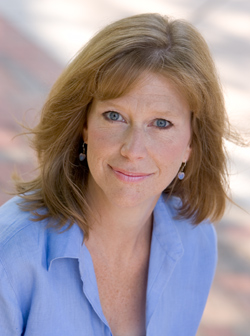 Mary Pat Donnellon remembers her first big ask as a fundraiser. She was a young volunteer with the YWCA of Lancaster when she signed up to help with a major donor fundraising campaign. Donnellon, who has a background in IT but a personality and ethos best suited for the nonprofit world, was nervous to meet with an elderly woman in the city to ask for $1,000. After a “lovely” half-hour meeting, Donnellon left with a check for $5,000.
Mary Pat Donnellon remembers her first big ask as a fundraiser. She was a young volunteer with the YWCA of Lancaster when she signed up to help with a major donor fundraising campaign. Donnellon, who has a background in IT but a personality and ethos best suited for the nonprofit world, was nervous to meet with an elderly woman in the city to ask for $1,000. After a “lovely” half-hour meeting, Donnellon left with a check for $5,000.
“That’s when I thought I could do this. She wanted to give; all she needed was someone to ask her,” says Donnellon.
It might not be quite that easy, but the company for which Donnellon serves as CEO sure makes it seem that way. Mission Research, which Donnellon joined in 2006, makes affordable fundraising software called GiftWorks. The Lancaster-based company, which has been deemed a socially responsible company by investors and customers alike, launched its re-branded identity this week with a new website. Mission Research has 10,000 clients worldwide mostly because its software is affordable at $499 (compared with competitors who can charge up to $40,000) and easy to use. The company, which employs 14 in a renovated tobacco warehouse and has received more than $300,000 in support from Ben Franklin Technology Partners, also recently launched an expanded menu of web tools that allow clients to collect information and donations on their own sites.
Donnellon, meanwhile has become somewhat of a nonprofit guru since starting her professional career as a systems engineer with Electronic Data Systems. She maintains a blog designed to share nonprofit best practices and is involved with the fundraising campaign for The New School in Lancaster, the J.P. McCaskey High School music department’s annual fundraiser, and the YWCA of Lancaster as a vice president on its board. The Ohio State University grad is still a Buckeye at heart, but says she’s found her “perfect position” in Lancaster.
Keystone Edge (KE): What else, besides GiftWorks’ more affordable price, sets it apart from other fundraising software?
Mary Pat Donnellon (MD): One of the things we really tried to do is create powerful software that’s simple to use. GiftWorks was designed with great attention to the user experience and we recognize that of all the features you can have, 80 percent are the most important and the other 20 percent can make things really complicated. So we focused on that 80 percent and streamlined process that make them very simple and easy to understand. We often hear from our users that Giftworks is so intuitive that it’s fun to use and does everything they need. Some organizations may get Sage or Raiser’s Edge, which involve a lot more training, but a lot of organizations end up doing nothing because of cost and time constraints and wind up using Excel or a homegrown Access database. We wanted to be a real alternative to give the organizations a choice.
KE: What features make it such a valuable solution?
MD: The feature I think is the “secret sauce” of Giftworks, so to speak, is the SmartLists. Basically, it’s our interpretation of a query. If you ever have tried to do a query in Access, it’s often counter-intuitive, tech-y, and not a natural experience. Our SmartList gives organizations the ability to create a targeted list based on any criteria they’ve captured in the database, all using the terms they use. You could say “I’d like to see a list of all donors in Lancaster who made a gift of $1,000 or more.” It’s all in English and all very easy to do. It doesn’t feel like a text query. We’ve made it very easy to slice and dice data. Once you create a list, you can do all kinds of things, like go into the Mail Center and send out communication, or run a report and look at it for analytics. So many organizations have never done this. They’re working hard but flying a bit blind. This tool changes everything. Knowledge is power and this tool gives power to anyone using it.
KE: How is Mission Research a socially responsible company?
MD: It’s not like we’re a manufacturing company and have a huge amount of waste. You can download our software. Yet everything we do use, we’re committed to using 100 percent post-consumer recycled goods and all the right materials in anything we do, but more than that, we’re really mission-oriented. While we’re a for-profit business, we’re not looking to make extravagant profits. Our biggest motivation is to make our product better to enhance and improve the nonprofit sector and we’re very much aligned with meeting the needs of the sector. Our primary funder is a socially responsible funder called Triple Bottom Line Capital (of California) that invests only in socially responsible businesses. It’s all about measuring results, not just in terms of profit, but how we affect people and the planet.
KE: What’s the No. 1 issue facing nonprofits today?
MD: I think everyone’s still trying to figure out how to leverage social media, and I don’t think that case has been cracked yet. Another trend that’s fascinating: I went to a non-profit technology conference in Atlanta last month and there’s a lot of data to support what I’ve also observed, there’s a lot more interest in the nonprofit sector and organizations from young people. Generation X and Y are looking for meaning in their work. I see a whole influx of talent coming into the sector. All of a sudden, nonprofit work is cool. Not coincidentally, I think this social media issue will get solved and driven by this new generation.
KE: Any advice for the flood of youngsters coming into the industry?
MD: My advice would be to respect your elders and learn what they know. And those elders should respect young people and what they know. With that combination, both are going to have innate capabilities that the other will need to learn from. I was recently in a board meeting where someone said younger people on the board aren’t that productive and can’t make donations. But that’s short-sighted. They have insight that some of us old-timers don’t have. For young people, it’s not going to be all about social media. It’s about good old-fashioned relationships. There’s going to be a lot of series giving that’s going to happen through a big wealth transfer from the baby boom generation. Both generations have to respect what the others can bring to the table.
Joe Petrucci is managing editor of Keystone Edge. Send feedback here.
To receive Keystone Edge free every week, click here


